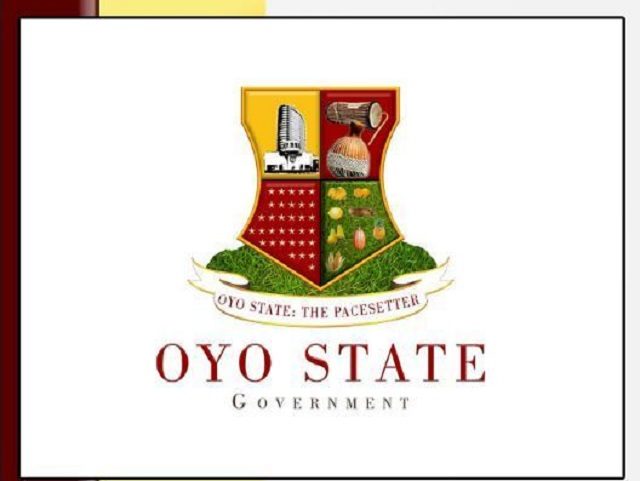Director-General of the Oyo State Agribusiness Development Agency (OYSADA) and Executive Adviser on Agribusiness to Governor ‘Seyi Makinde, Dr Debo Akande, has stated that a French firm, SEMMARIS-Rungis International Market, is set to support the establishment of an international wholesale agribusiness market in the state.
Akande stated this on Wednesday, when a delegation of the firm, including its Head of International Projects, Timothée Witkowski and Consultant-Market Specialist, Steve Allen, paid a courtesy visit to the governor in Ibadan.
According to the OYSADA DG, the investors plan to complement the Makinde administration’s efforts in the agribusiness sector with the establishment of the market, which will be a major market for agribusiness and for farmers.
He added that the investors had, before the visit to the governor, gone round the state to see the infrastructure built by the governor in the last five years, the Fasola Agribusiness Industrial Hub as well as major markets in the state.
Akande said: “It is a courtesy visit to His Excellency. The team came from what we call the Rungis-SEMMARIS Market in France. We have been there together with His Excellency in the past.
“What they plan to do is to support us in establishing the International Wholesale Agribusiness Market in Oyo State, most likely in Ibadan.
“This is to complement a lot of work the governor has been doing in agribusiness in the state. This will be a major market for agribusiness and for farmers as well. They have gone round to see most of the facilities that have been built by the governor in the past five years. They have been to lseyin-Moniya road, Fasola Agribusiness Industrial Hub, Bodija Market, Akinyele Market and others to see what is currently on ground and what they can do to advance on that.
“What they have in France, which we are mirroring ourselves after, is a global market, the largest wholesale market globally and we have seen it. If you go there by 5 a.m, you won’t see anybody because most of the products in that place have been taken by trailers, moving to diverse places in Europe.
“So, we are anticipating that the growth of agribusiness and agriculture within our state would demand us to have that kind of a centralised system for the wholesale agricultural market. We are building and developing the foundation and when things grow as we are building agricultural industrial hubs in different locations including Fasola, Eruwa, Ijaye, this would be needed and would be required.”
The OYSADA DG added that the direct benefit of the wholesale market to the people of the state is that the state is becoming highly industrialised and also helping to develop a systematic approach to what farmers in the state would be producing.
“If a big company wants to come and buy two million tonnes of cassava or yam packed, where will they be getting them from? Currently, they source from different farms and villages, but they would not need to do that any longer because most of these things would be centralised in a place where the farmers can sell them.
“The farmers will have companies to sell to and these companies can now sell to big companies, which is the concept behind wholesale.
“If you have a large company that is interested in using cashew, use soya beans or process products as well, it knows the centralised place to come and pick in high volume. It is not now to go to different farms and villages to get 2 tonnes, 3 tonnes and what have you. And this means access to markets for our farmers. It means our farmers will now have access to sell their products at a good price.”
He maintained that apart from the infrastructure and facilities put in place by Governor Makinde, the state has improved security with the creation of the Oyo State Security Network Agency codenamed Amotekun, while it has also been increasing its resources on security and will continue to do so.
Speaking earlier, SEMMARIS-Rungis’ Head of International Projects, Witkowski, said Oyo State has great potential and that its central location and the efforts of Governor Makinde have made it a strategic location for the development of wholesale infrastructure for food supply in Nigeria.
He said: “Oyo State is part of a strategy that we are currently implementing. We are intervening in the framework of the French Development Agency Funding Project, which is under a tripartite arrangement with IFD, SEMMARIS and the Federal Ministry of Agriculture and Food Security.
“The outcome of this study is to basically draw a global strategy for developing wholesale infrastructure to supply products in Nigeria. So, we are currently working on three corridors; Kano and Kaduna states in the North; Port-Harcourt and Onitsha in the South-East and Lagos, Oyo states in the South-West corridor.
“Given the central location that Oyo State has on the global map of strategic flows of agriculture and also given the potential here; with nine million habitants in the state, we believe that it is a key strategic place for developing a strategic agriculture hub and a wholesale market.
“It is also in line with other efforts that have been carried out by the state to promote more competitive, more affordable and more sustainable agriculture. So, we are working in line with the strategy and are basically happy to put up the infrastructure in these locations.
“We have taken our time to tour around different locations here in Oyo State and it is all positive and we believe there is a strong political will, which is not only on paper. We have seen that a lot of projects have been done and are ongoing. For us it is all positive, because for us, if we project ourselves in the long-term, it will create a whole ecosystem that will boost the support and supply.
“The Rungis Market is a wholesale market, which is located six to seven kilometres away from Paris, and is the biggest wholesale market in the world. We have about 12 billion Euro revenue per year for three million tonnes of products trading every year. We trade several types of products including fruits and vegetables, meat, poultry, game, fish and seafood. We also trade in cheese and dairy products and flours.
“This ecosystem comes from about one thousand companies for about 13,000 direct jobs. It supplies 18 million people on a daily basis. So, when we think about this kind of infrastructure, it is not only good for ensuring food security but also for food safety, because we have adequate infrastructure for the professionals who can supply goods in hygienic ways.
“So, when you have such a market, it prevents concessions, because you provide a place for the trucks to supply the cities and you prevent them from entering into the cities. This ecosystem is good for an agribusiness environment, good for the development of the city and good also for urban planning.”
Packaged by Adekunle Adegboyega









































































